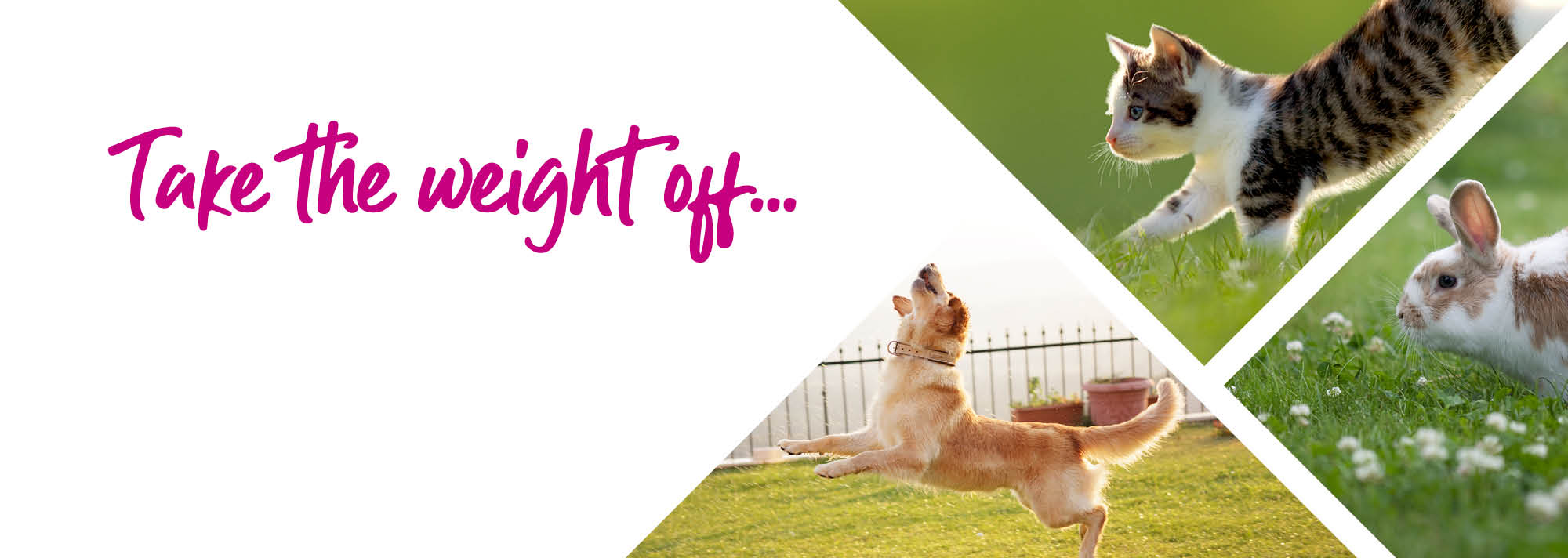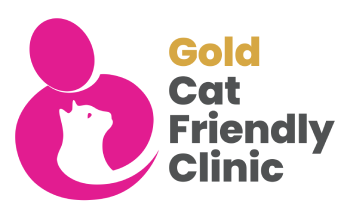Lettuce talk about rabbit food
When people say 'rabbit food', many people instantly think of 'salad', but this is not what rabbits need for a healthy diet. Hay and grass with a variety of vegetables, weeds and lettuce provide rabbits with a good mix of the nutrients they need. The indigestible fibre within hay and grass are vital for your rabbits gastro-intestinal health and for keeping their teeth in good shape! If you have a lawn space outside, this is also great for your rabbit, giving them time to graze and exercise. Ensure your rabbit is vaccinated and treated against parasites before doing this.
Book a weight check consultation today
Fresh grass should be offered. Do not feed your rabbit lawn mowing clippings, this will cause digestion problems.
Complement the daily intake of grass and hay with small selections of carefully chosen vegetables, weeds and leaves:
- Cruciferous vegetables – cabbage, cauliflower, broccoli, sprouts
- Spring greens
- Kale and parsley
- Carrots tops
- Green beans
- Pea-leaves
Appropriate leaves and weeds include:
- Fruit-free leaves and twigs
- Hazel leaves
- Dandelions
- Brambles
- Clover
- Dock
Meanwhile, you should avoid feeding your rabbit the following:
- Banana
- Apple
- Iceberg lettuce
- Tomato
- Sugary treats
Foods with low fibre and high sugar are the opposite of what rabbits require; avoid giving them these types of food where possible. It also goes without saying that rabbits need continuous access to fresh drinking water. In the winter months this should be changed more frequently to avoid freezing. The recommended time to change water is twice a day.
Run, rabbit run
Rabbits are used to the great outdoors, having space to run and move about freely. This is why they require so much spacein a home. Research by the PDSA has sadly shown that *25% of rabbits in the UK are kept in small hutches with minimal to no space to run. Without exercise, rabbits will sit still and gain weight quickly; it is important for them to have space to run and hop.
To keep your bunny fit and healthy, a recommended minimum of 3 hours is given, the more the better! Rabbits in the wild are used to foraging for food, so this is a great way to encourage your rabbit to move and run about, getting the exercise they need daily.
- Digging. Rabbits enjoy time to dig! Living in burrows in the wild, which they have dug themselves, means it’s intuitive for your bunny to want to dig deep. You probably won’t want your rabbit digging up your lawn so perhaps get a shallow planter filled with soil to have fun with instead!
- Foraging. This isn’t something our domestic bunnies naturally do, given that we are their primary food provider. However, the PDSA suggest you can encourage this at home by making up ‘forage trays’ A big part of a rabbit’s day would usually be foraging for food. You can hide their food in amongst scrunched up newspaper or grass, freshly pulled from the ground (avoid lawn clippings as these can cause an upset tummy). Scattering some food across a clean area of their hutch or box filed with hay, outside, will help with that foraging instinct.
- Exploring. Exploring is instinctive to rabbits as they are naturally curious. You can help stimulate this with providing rabbit-safe toys and create tunnels which rabbits love to explore! While they’re in our gardens, they can’t really explore new places, so make sure you give them lots of rabbit-safe toys they can have a look at. You can also cut holes in a cardboard box for them to run through and explore or get them a rabbit-safe tunnel, to keep that curiosity going.
- Jumping. Jumping is a natural part of rabbit life so you might want to experiment with giving your rabbit different levels in their run to climb and jump from.
- Gnawing. Rabbits’ teeth continually grow so it’s important to provide them with things that are safe for them to gnaw. Small branches from apple, maple, birch and willow trees would be good for them.
*https://www.pdsa.org.uk/what-we-do/pdsa-animal-wellbeing-report







